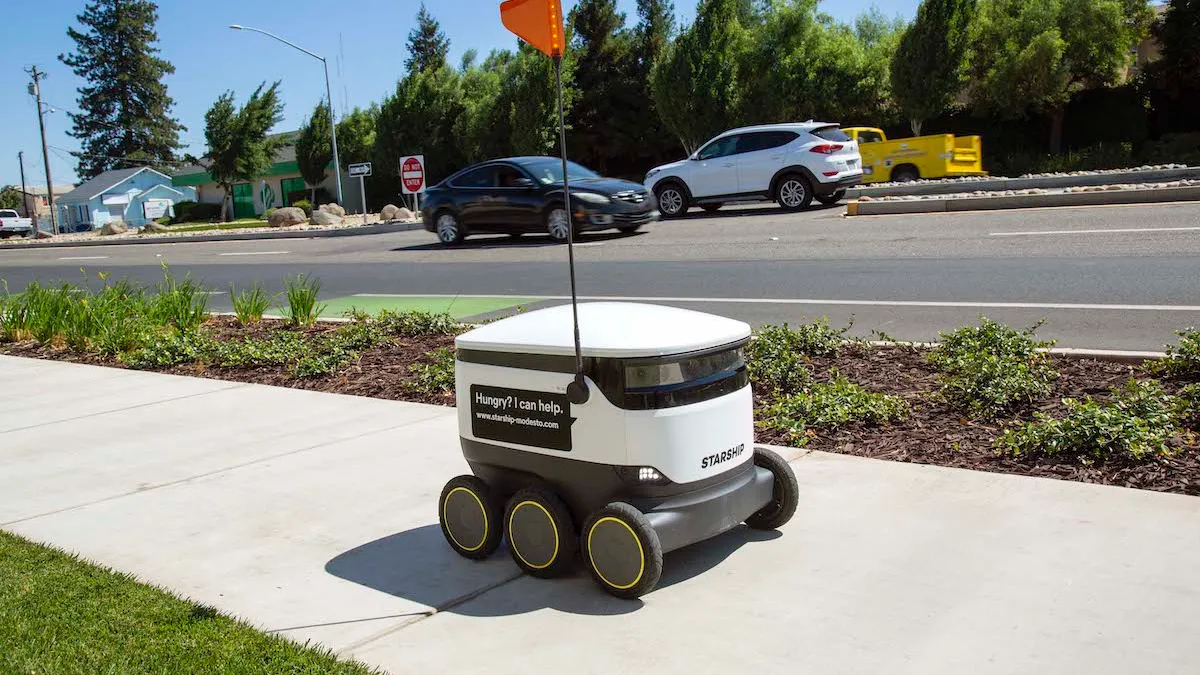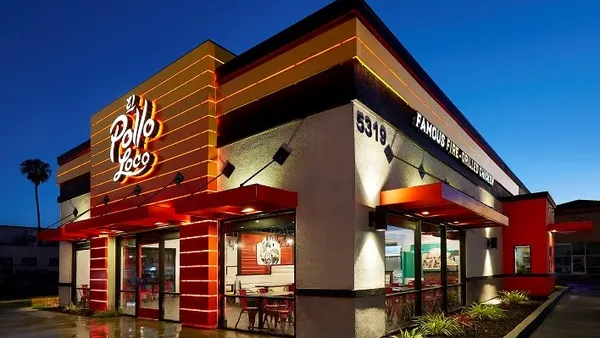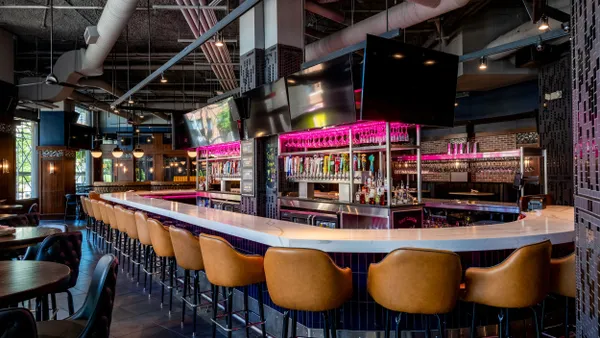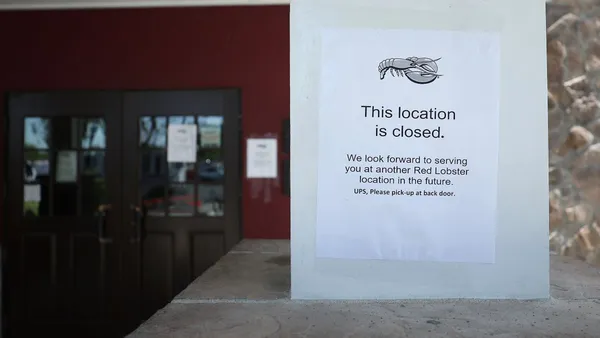Dive Brief:
- Starship Technologies, a leader in the robot delivery industry, has raised nearly $100 million since the end of January, the company announced Monday.
- The company raised $57 million from the European Investment Bank and $42 million in a Series B funding round led by NordicNinja, a Japanese-Nordic venture capital firm, and Taavet+Sten, a venture capital firm focused on supporting European tech companies.
- The funding suggests investor confidence in the potential of robot delivery companies. Kiwibot, one of Starship's competitors, is also attracting investment, landing a $20 million contract expansion with Sodexo last month that will bring over 1,200 of its bots to 50 U.S. college campuses this year.
Dive Insight:
Robotic delivery, and delivery in dense markets generally, has emerged as point of competition among tech firms. College campuses are a growing target for these companies thanks to their high population density and pedestrian-friendly campus layouts, which make it easy for sidewalk-roving bots to travel along.
Starship, which is headquartered in San Francisco, entered university campuses in 2019, but also works with restaurants, grocery stores and other retailers. The company's 1,700 robots make upwards of 10,000 deliveries a day in the U.S. and Europe, TechCrunch reports.
Major delivery aggregators have also poured money into robotic delivery. Grubhub has targeted college students as part of its partnership with Yandex NV, a Moscow-based robotics company. DoorDash has also filed patents for robotic delivery technology, and Uber Eats plans to launch autonomous delivery with Motional this year. Restaurant chains are also dipping a toe in the market — last year, Chick-fil-A launched a pilot with Kiwibot in Santa Monica, California.
Starship's latest cash infusion may hint at the category's potential to expand. The autonomous delivery robot market is predicted to reach $55 billion by 2026, growing 20.4% annually, according to Facts & Factors. Starship told TechCrunch it will use its new funding to expand into new markets, deepen its efforts in extant markets and develop new technology, including robots that can travel on roads in addition to sidewalks.
Currently, Starship relies on branded robots that can make deliveries for multiple partners depending on demand. But CEO Alastair Westgarth told TechCrunch that in the future, Starship may lease or sell robots to individual partner businesses for their sole use.
"The autonomous delivery market has been gaining momentum the past couple of years and we think it will really take off this year," Westgarth said in a statement. "The demand for Starship's services continues to rapidly increase and we are regularly contacted by more college campuses and cities that want our services, often because they hear about the great results that Starship is already delivering."














